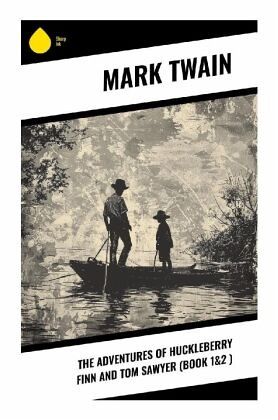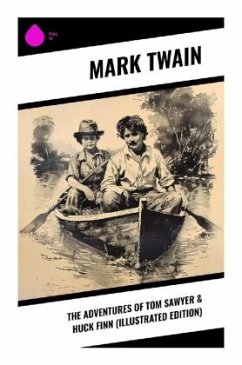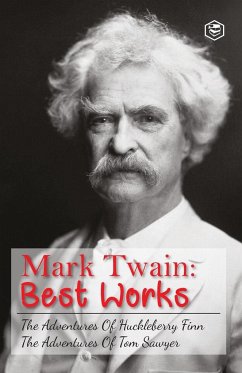
The Adventures of Huckleberry Finn and Tom Sawyer (Book 1&2 )
Versandkostenfrei!
Versandfertig in 6-10 Tagen
23,60 €
inkl. MwSt.
Weitere Ausgaben:

PAYBACK Punkte
0 °P sammeln!
Mark Twain's seminal works, "The Adventures of Huckleberry Finn" and "The Adventures of Tom Sawyer," offer a profound exploration of youth, freedom, and the moral dilemmas of American society in the 19th century. Twain employs a rich, colloquial style, immersing readers in the vernacular of the Missouri River region, which brilliantly captures the essence of American life. Through the intertwined lives of Huck and Tom, Twain delves into themes of friendship, societal expectations, and the quest for identity against the backdrop of a rapidly changing nation. The novels, often considered foundat...
Mark Twain's seminal works, "The Adventures of Huckleberry Finn" and "The Adventures of Tom Sawyer," offer a profound exploration of youth, freedom, and the moral dilemmas of American society in the 19th century. Twain employs a rich, colloquial style, immersing readers in the vernacular of the Missouri River region, which brilliantly captures the essence of American life. Through the intertwined lives of Huck and Tom, Twain delves into themes of friendship, societal expectations, and the quest for identity against the backdrop of a rapidly changing nation. The novels, often considered foundational texts of American literature, reflect the socio-political tensions of their time, particularly concerning race and class, while also presenting a humorous and critical portrait of human nature. Mark Twain, born Samuel Clemens in 1835, was a riverboat pilot, journalist, and humorist whose experiences deeply influenced his writings. He grew up in Missouri, a region rife with contradictions that shaped his views on race and morality. These autobiographical elements are evident in the lives of Huck and Tom, whose adventures mirror Twain's own childhood escapades. His unique blend of realism and idealism captured the complexities of American life, allowing him to address controversial societal issues through the lens of youthful innocence. "The Adventures of Huckleberry Finn and Tom Sawyer" is a must-read for those seeking insight into American culture and literary tradition. Twain's unforgettable characters and vivid narratives not only entertain but also invite critical reflection on freedom, race, and society's moral fiber. Readers will find themselves captivated by the charm and wit of these timeless tales, making it a pivotal addition to any literary collection.














